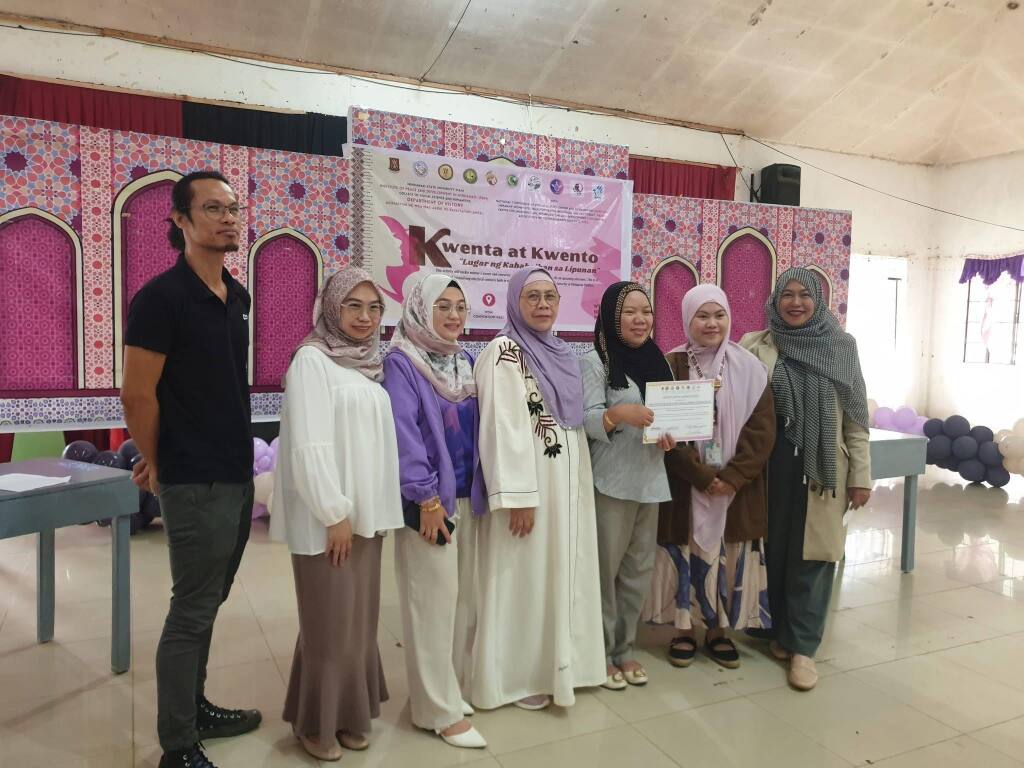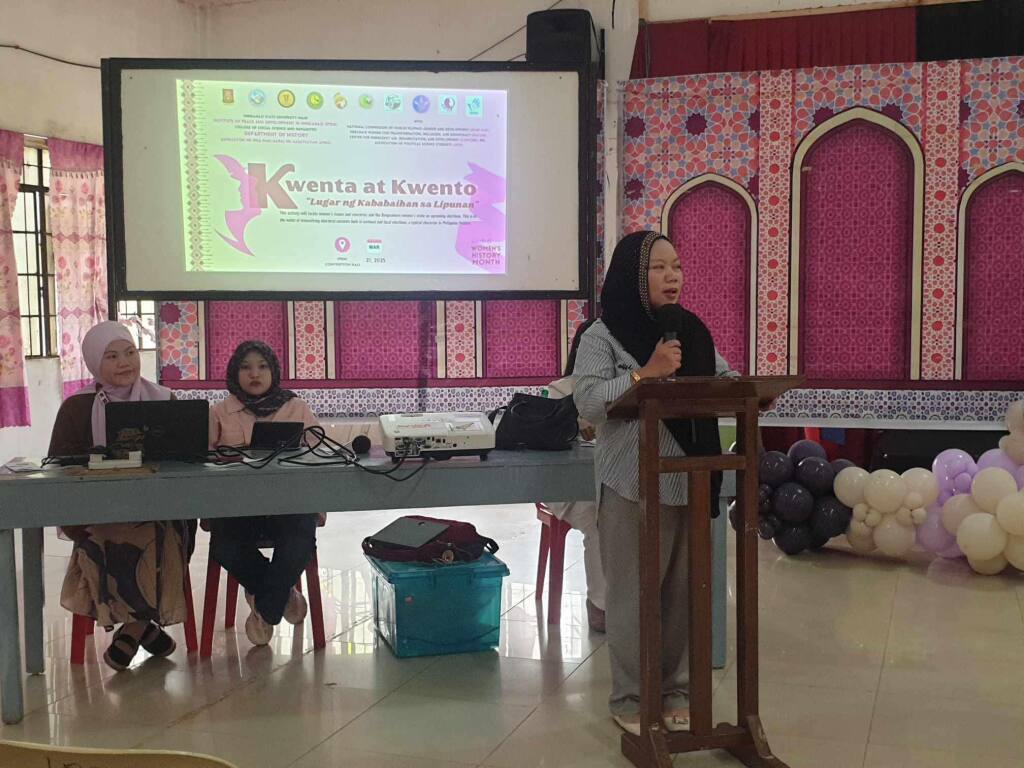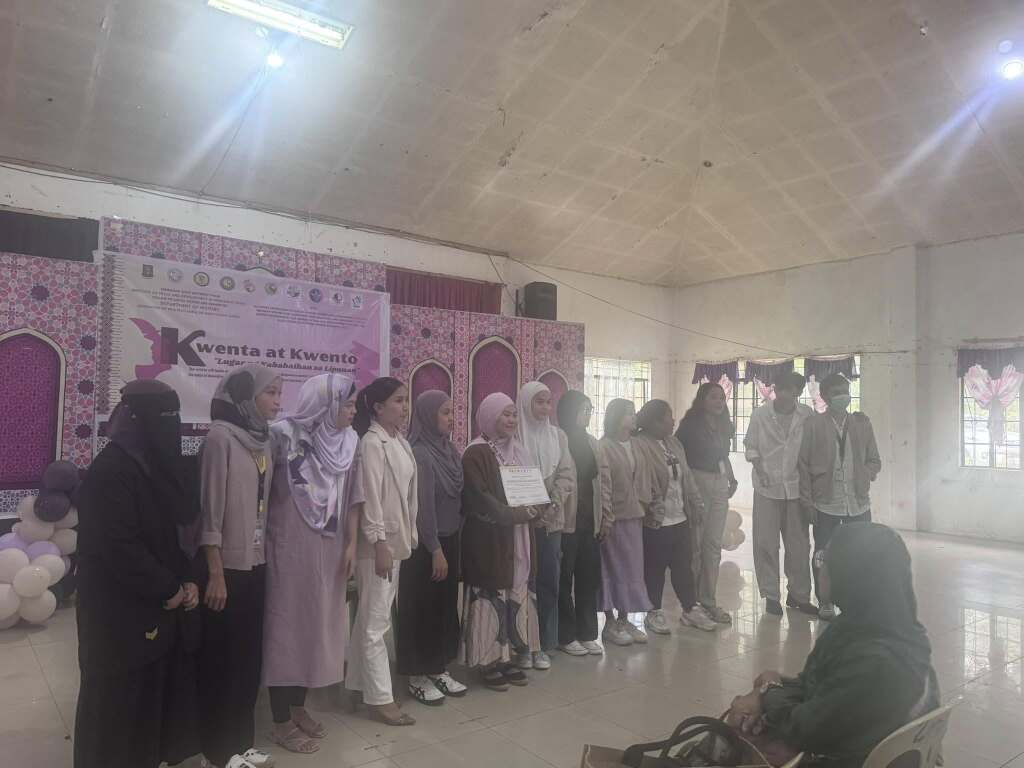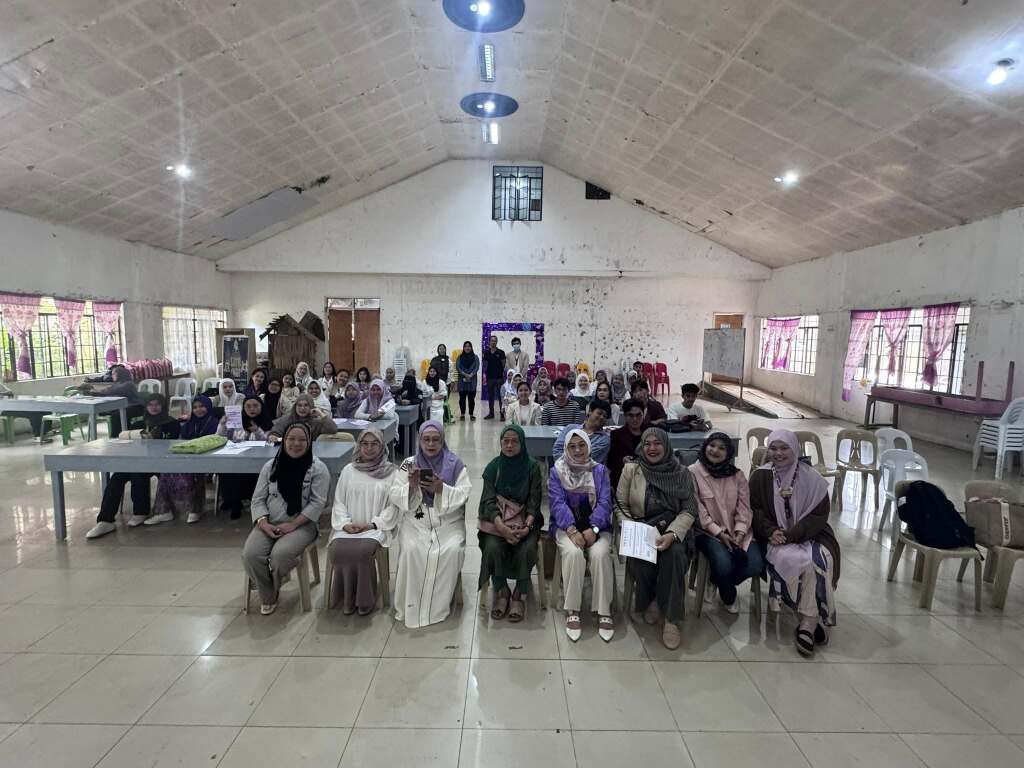Aliah P. Cali-Pascan, DPA, JD
A powerful gathering unfolded on March 21, 2025, at the IPDM Convention Hall, Marawi City, Bangsamoro Autonomous Region in Muslim Mindanao, marking a significant celebration of Women’s Month. Under the theme “Kwenta at Kwento: Lugar ng Kababaihan sa Lipunan” (Account and Story: The Place of Women in Society), the event honored the resilience, strength, and enduring spirit of women, acknowledging their vital yet often overlooked contributions to society.
The day was dedicated to amplifying women’s voices, particularly within the context of the Bangsamoro region’s democratic process, especially with the upcoming elections in mind. Recognizing that true democracy thrives on inclusivity, the event aimed to empower women with knowledge about their electoral rights and responsibilities.
The program commenced with a formal opening by Dr. Aliah P. Cali-Pascan, setting the stage for a day of insightful discussions and empowerment. Following this, the program featured a series of insightful presentations and discussions, each contributing to a deeper understanding of women’s roles and challenges. Emmanuel Moso of Idefend initiated the discourse with “Pagpapakatao: fighting for people’s democracy,” emphasizing the importance of participatory governance. Following this, the Association of Political Science delivered a compelling presentation on women’s rights, highlighting the ongoing struggle for gender equality. Ms. Naifah Batugan provided a crucial overview of the Bangsamoro Electoral Code, clarifying the legal framework governing electoral participation.
Ms. Kharima Ananggo of the National Commission on Muslim Filipinos offered thoughtful reactions to the presentations, enriching the dialogue with her expertise. This collaborative effort, spearheaded by MSU’s esteemed institutions—IPDM, the History Department, Assosasyon ng Magaaral ng Kasaysayan (AMKa), and the Association of Political Science—along with Idefend and the National Commission on Muslim Filipinos, Office of Gender and Development, and Dr. Anisah Mapupuno Laguindab, underscored the collective commitment to advancing women’s rights. Dr. Khayronesah Abbas also documented the event, ensuring that the important discussions and moments were recorded.
The event served as a platform to weave together narratives of struggle, triumph, and transformation. Participants were encouraged to share their stories, recognizing that every woman’s experience matters. The overarching goal was to foster a future where women’s voices resonate in all spheres of power, where their wisdom shapes policies, and where their leadership drives positive change within communities.
The gathering was a resounding call to action, emphasizing that the participation of women is not just a matter of justice but a fundamental pillar of a thriving democracy. By empowering women with knowledge and providing a platform for their voices, “Kwenta at Kwento” aimed to ensure their meaningful participation in both national and local elections, contributing to a more equitable and inclusive society. The program was then concluded with closing remarks from Ms. Manal Ditucalan Hadjinor of AMKa. The event served as a powerful reminder that every story matters, and together, a future where women’s voices are heard and valued can be built.




